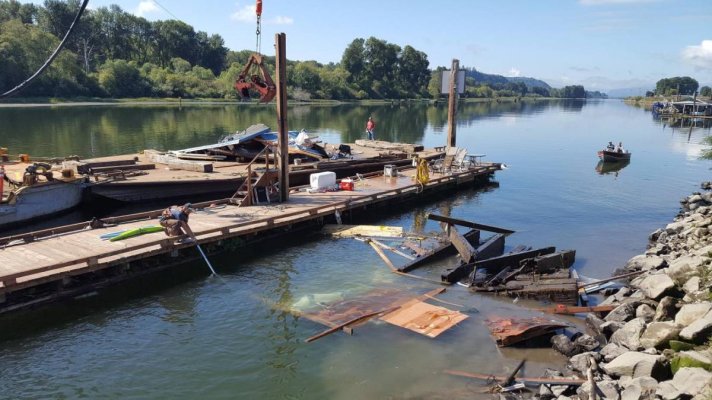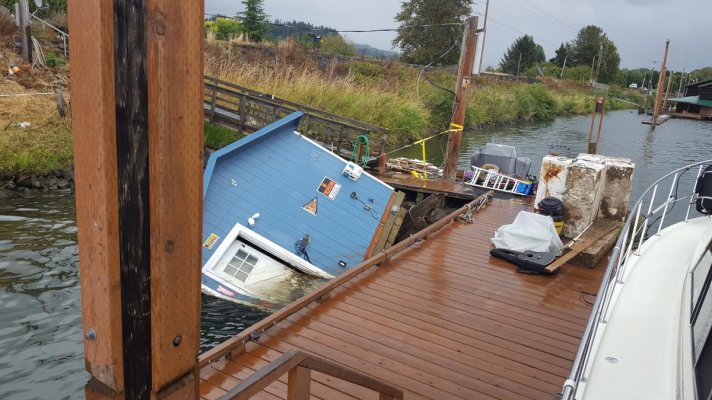Lepke
Guru
- Joined
- Jun 19, 2016
- Messages
- 3,136
- Location
- US
- Vessel Name
- Charlie Harper
- Vessel Make
- Wheeler Shipyard 83'
As someone that has a private dock, I see no wake as not causing damage, whatever speed that requires. I have weekly minor damage in the boating season. Sometimes heavier damage. Almost all of it from yachts that would be hard pressed to make 10 knots, but won't slow down to a no wake speed for a couple minutes. The other problem is speedboats, going by pushing a wall of water, bow high, maybe 5 knots.
I have an 83x17 boat with twins and can go by any dock or marina without rocking the boats. I do that at idle, with one engine in neutral, dragging the prop. And I have small rudders. About 50 years ago, on a 60,000 hp destroyer, we went by a marina in a narrow channel, weekly, without rocking the boats. (Hylebos Waterway, Tacoma)
I got no sympathy for you whiners that can't slow down for a couple minutes while you go by a dock. Maybe if dock owners put up cameras and started collecting for damage, we could get some compliance.
I have an 83x17 boat with twins and can go by any dock or marina without rocking the boats. I do that at idle, with one engine in neutral, dragging the prop. And I have small rudders. About 50 years ago, on a 60,000 hp destroyer, we went by a marina in a narrow channel, weekly, without rocking the boats. (Hylebos Waterway, Tacoma)
I got no sympathy for you whiners that can't slow down for a couple minutes while you go by a dock. Maybe if dock owners put up cameras and started collecting for damage, we could get some compliance.


